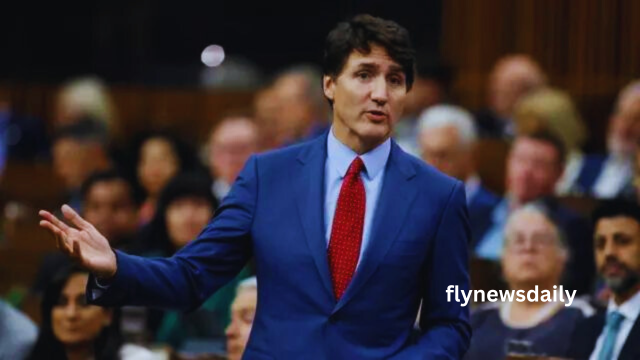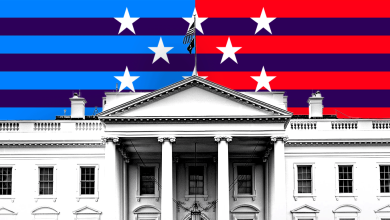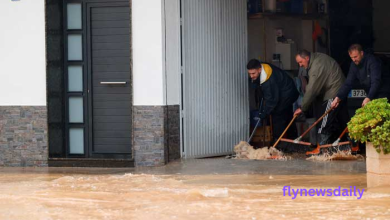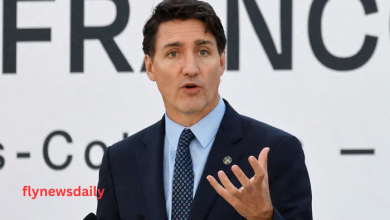
1. Introduction
Canada’s Prime Minister, Justin Trudeau, recently faced a significant political challenge: a no-confidence vote. Despite numerous hurdles and mounting pressure from opposition parties, Trudeau emerged victorious, ensuring his government’s survival—at least for now. This article explores the background leading up to this vote, what it means for Trudeau’s fragile leadership, and the implications moving forward.
2. Background: What Led to the No-Confidence Vote?
Trudeau’s government has been under fire due to several factors. Political scandals, like the WE Charity controversy, coupled with economic struggles stemming from inflation and housing shortages, have left many questioning the strength of his leadership. The COVID-19 pandemic added further strain, as critics accused the government of mishandling aspects of the crisis. These challenges created fertile ground for opposition parties to push for a no-confidence vote, aiming to unseat Trudeau.
3. The Mechanics of a No-Confidence Vote in Canada
In Canada, a no-confidence vote occurs when members of Parliament (MPs) express their dissatisfaction with the sitting government. This can happen for various reasons, including a significant loss of faith in the Prime Minister’s ability to govern. If the vote succeeds, the government must resign, potentially triggering a general election. In Trudeau’s case, the vote aimed to destabilize his administration and question its legitimacy in addressing the nation’s ongoing challenges.
4. Trudeau’s Survival: How Close Was the Vote?
Trudeau’s survival wasn’t a foregone conclusion. The final vote was close, with opposition parties like the Conservatives and Bloc Québécois aggressively campaigning against him. However, key support from the New Democratic Party (NDP) allowed Trudeau to remain in power. The narrow margin reveals the delicate balance Trudeau’s government currently faces, highlighting the fractures within Canada’s political landscape.
5. Impact on Trudeau’s Leadership
Although Trudeau survived the vote, the implications for his leadership are profound. Public trust in his administration has eroded, and questions linger about his ability to steer Canada through its current crises. The Liberal Party, once unified, now faces internal struggles as members debate whether Trudeau remains the best choice for leader ahead of the next election. Can he restore faith, or is his leadership on borrowed time?
6. The Liberal Party’s Position Post-Vote
The Liberal Party may have held the line, but dissent is growing within its ranks. Some MPs question whether Trudeau’s leadership is sustainable in the long term, particularly as public opinion continues to waver. To avoid further fractures, the party must carefully balance loyalty to its leader with the practicalities of political survival. What strategic moves will the Liberals take to ensure they remain a dominant force?
7. The Opposition’s Role: Strengthening or Weakening?
Opposition parties, including the Conservatives, NDP, and Bloc Québécois, have seen mixed results. While the no-confidence vote underscored their collective discontent with Trudeau, it also revealed their inability to decisively topple his government. For the opposition, this vote was both a rallying cry and a stark reminder of their limitations. Will they unite to challenge Trudeau more effectively, or will internal divisions hinder their efforts?
8. Public Opinion: How Canadians View Trudeau
Public sentiment towards Trudeau is divided. Polls indicate that while many Canadians still support his progressive policies, others are deeply dissatisfied with his handling of key issues such as inflation and housing. Trudeau’s image as a global leader has taken a hit domestically, and his ability to regain trust will be crucial if he hopes to retain power in the next election.
9. Economic Challenges Facing Trudeau’s Government
One of the most pressing concerns for Trudeau’s government is the economy. Inflation rates have skyrocketed, making everyday life more expensive for Canadians. The housing market crisis has only exacerbated this, with many struggling to find affordable homes. These economic challenges not only weaken public confidence but also give the opposition ample ammunition to attack Trudeau’s leadership.
10. Foreign Policy Implications of Trudeau’s Survival
On the international stage, Trudeau’s survival in the no-confidence vote sends a signal of stability. Canada’s stance on key global issues—like climate change and human rights—remains intact, for now. Relations with major global powers such as the United States and China are also crucial factors that will shape the next steps in Trudeau’s leadership.
11. Potential Internal Leadership Challenges
As Trudeau’s leadership is called into question, potential contenders within the Liberal Party could rise. Names like Chrystia Freeland, the current Deputy Prime Minister, have been floated as possible successors if the party decides a leadership change is necessary. Whether these internal movements gain momentum depends largely on Trudeau’s ability to address the party’s and the public’s concerns.
12. What’s Next for Trudeau’s Policy Agenda?
Despite the political turbulence, Trudeau’s government remains committed to key policy areas such as healthcare reform, environmental initiatives, and Indigenous relations. These areas will be central to his attempts at regaining public trust. However, implementation is critical. Will Trudeau be able to push through meaningful legislation, or will political obstacles derail his agenda?
13. Can Trudeau Regain Trust Before the Next Election?
With the next election looming, Trudeau’s primary task is to rebuild trust with the electorate. Strategies may include increased transparency, better communication, and more visible action on pressing issues like climate change and healthcare. Trudeau’s success in these areas will determine whether he can lead the Liberal Party to another victory or if his leadership will crumble under the weight of public scrutiny.
14. The Global Reaction: How Other Countries View Trudeau’s Leadership
Globally, leaders are watching Trudeau closely. His leadership during this no-confidence vote has been noted by allies and adversaries alike. The United States, European nations, and even China have vested interests in a stable Canadian government. Trudeau’s next steps could either strengthen or weaken Canada’s position on the world stage.
15. Conclusion: Is Trudeau’s Leadership Secure or Fragile?
In conclusion, Trudeau may have survived the no-confidence vote, but his leadership remains fragile. The political landscape in Canada is shifting, and Trudeau must navigate a series of complex challenges—both domestically and internationally. Whether he can maintain his position as Prime Minister largely depends on his ability to address the issues at hand and regain public trust.



